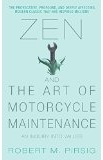Intellect 2
I had finished a section of the platform, and went to meditate but this was on my list to respond to and my intellectual mind couldn’t let it go. Genuinely, what a scourge.
I remember when I first read ZAMM it was all about reason. My mind jumped from one reason anecdote to the next eating them up whilst ignoring the countryside the relationship with Chris and so much more. This was the Phaedrus in me – prickly and intense. I was still mixing with the Arts Centre, and I was their barometer – black and white with no grey barometer. This was a nice role to have – balancing on a classic-romantic tightrope with the intellectual history of a maths and stats education and a writing muse busting out from inside.
I had to write this, and it is probably a common place response from statisticians. He was discussing the outcomes of an experiment whether it was favourable, it had failed or there was no outcome. DoE, Design of Experiments jumped out at me 43 years after completing the course – OK I have taught stats A level but …. I had to write this, my intellect said so; it is a bone as I am going to quieten the intellect in meditation when I have finished this. So there are three choices – favourable, failure or no outcome. All three can be acceptable form the design point of view so long as the design sees the three possibilities as having meaning. But usually they don’t. The purpose of a hypothesis is to gain information about the statement of the problem. The number of hypotheses about a problem is vast and variable. You choose the hypothesis in such a way that the experiment carried out will provide a definite conclusion - usually favourable or failure. Acceptance or rejection of the hypothesis then follows, providing information about the stated problem. What Pirsig did not say is that if there is no outcome, no accepting or rejecting the hypothesis, then the hypothesis has been chosen badly, this is what my intellectual mind was pushing me to say.
It’s nothing, isn’t it?
Of course if conclusions can be drawn from the no outcome result – other than that the hypothesis was inappropriate, the statistician would then argue that the design was good. But then there are lies, damn lies and statistics??
Can you see how hooked I would have been with Pirsig’s ghost of rationality? Before I had recognised intellect needs its natural place. Removing the I and mine from the 5 khandas - detaching from sankhara.
One problem with this style of reading and writing - Pirsig discussed hypotheses later.





